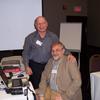Types of materials
Archive & web-site
News
03/27/2018 - 08:50
03/27/2016 - 01:15
12/09/2014 - 11:25
01/16/2016 - 16:08
01/16/2016 - 14:32


Recent comments
12 years 46 weeks ago
13 years 46 weeks ago
13 years 46 weeks ago
13 years 46 weeks ago